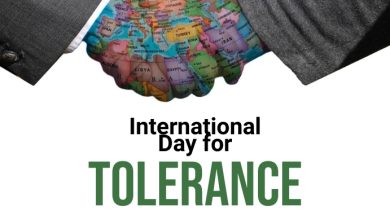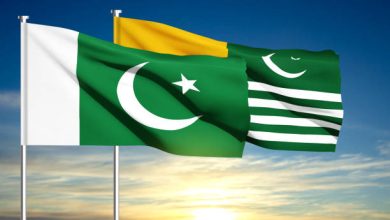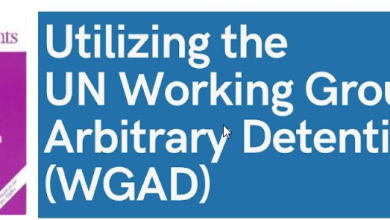
Press freedom and freedom of expression are fundamental pillars of a democratic society. They enable individuals to express their opinions, share information, and hold those in power accountable. However, in India and especially in the region of Kashmir, these freedoms have faced significant challenges and restrictions. This article will explore the state of press freedom and freedom of expression in India and Indian illegally occupied Jammu and Kashmir, highlighting the issues faced by journalists and the impact on the overall democratic fabric of the region.
India’s ranking in the 2023 World Press Freedom Index slipped further to 161 out of 180 countries from 142 in 2021 and 150 in 2022. The fall in the index was in considerable measure due to the treatment of journalists in J&K and in rest of its states . Following the abrogation of Article 370 and 35A in August 2019 by the BJP government, approximately eight million Kashmiris found themselves deprived of a trustworthy means of obtaining information. The Indian government, exercising strict control over the dissemination of news, has been systematically targeting journalists on the field. Since August 5 2019, they have summoned or conducted raids on more than two dozen journalists, aiming to cultivate an atmosphere of fear and intimidation.
Media individuals facing legal challenges in India: Masrat Zahra and Gowhar Geelani were charged under the Unlawful Activities Prevention Act (UAPA) for their social media posts that were considered anti-national. Qazi Shibli, editor of “The Kashmiriyat,” was detained in Bareilly Jail, Uttar Pradesh, under the Public Safety Act (PSA) and released on April 13, 2020, after nine months in custod ( the Public Safety Act (PSA), 1978, is a black law that allows the detention of any individual for up to two years without a trial or charge). Asif Sultan, a journalist associated with “Kashmir Narrator,” has been imprisoned since August 2019 for reporting on Indian atrocities in Jammu and Kashmir and was accused of supporting terrorist activities.
Since May 2023, Manipur has been facing an information blockade due to clashes between the Meitei and Kuki communities, the blockade has greatly limited the freedom of journalists and news professionals, as well as the freedom of expression for all residents of Manipur, adding to the existing communication challenges caused by the blackout and internet shutdown, the Manipur Government has issued an order prohibiting the sharing of videos or images showing violent incidents in the state.
“On Saturday, August 19 2023, Indian authorities blocked access to the independent Kashmiri news outlet “The Kashmir Walla”. Social media users and Indian news outlets posted screenshots of a message saying: “The website has been blocked as per order of Ministry of Electronics and Information Technology under IT Act, 2000.”
On September 15,2023 Indian police booked Kashmiri journalist and TV panelist Majid Hyderi and three Kashmiri youth under black law, Public Safety Act (PSA) in Srinagar and Kishtwar districts of Indian illegally occupied Jammu and Kashmir on Monday.
Police arrested the editor and an employee of the news portal NewsClick on October 3,2023 and raided the homes of 46 journalists, staff and contributors seemingly connected to the site, seizing electronic devices, including laptops and cellphones, over allegations of illegal foreign funding, which the outlet has categorically denied. Their office has since been sealed.
Recently, A joint investigation by Amnesty International and The Washington Post revealed that the Indian authorities used Pegasus pyware to gain access to the phone of prominent journalists and media officials in India. (Pegasus software , spyware developed by Israeli cyber-intelligence firm NSO Group (founded in 2010) for eavesdropping on mobile phones and harvesting their data).
The investigation uncovered that journalists Siddharth Varadarajan of The Wire and Anand Mangnale of The Organized Crime and Corruption Reporting Project were targeted with the spyware on their iPhones. This revelation has raised concerns about the growing threat of illegal surveillance faced by journalists in India.
Journalists in India are increasingly facing the risk of illegal surveillance as they carry out their work. This threat is accompanied by other forms of repression, including imprisonment under strict laws, smear campaigns, harassment, and intimidation.
The United Nations special reporter on freedom of expression and the Working Group on Arbitrary Detention raised concerns with the Indian Government in June of last year regarding the arbitrary detention and intimidation of journalists covering the situation in Jammu and Kashmir. Specifically, they expressed concern about the detention of Qazi Shibli, Sajar Gul, Auqib Javed, and Fahad Shah, as well as the closure of the outspoken newspaper Kashmir Times in October 2020.
The letter sent to the Indian Government highlighted these violations as potentially part of a larger pattern aimed at silencing independent reporting in Jammu and Kashmir. This pattern of silencing could ultimately discourage other journalists and civil society from reporting on important issues of public interest and human rights in the region. The UN expressed concern over the potential impact on press freedom and the broader human rights situation in Jammu and Kashmir.
India wants to keep the world away from the situation in Jammu and Kashmir by erecting obstacles on freedom of media and freedom of expression. According to the state orders, Indian forces and institutions are suppressing the voice of Kashmir, the violation of human rights and the public violation of the United Nations Human Rights Charter have made India a global criminal. India, which claims to be the largest democracy in the world, is at the forefront of human rights violations. The Kashmir issue demands a peaceful and transparent Indian democracy and fair research and full media freedom from international institutions.
*Student of Bs English at Foundation University Islamabad.








